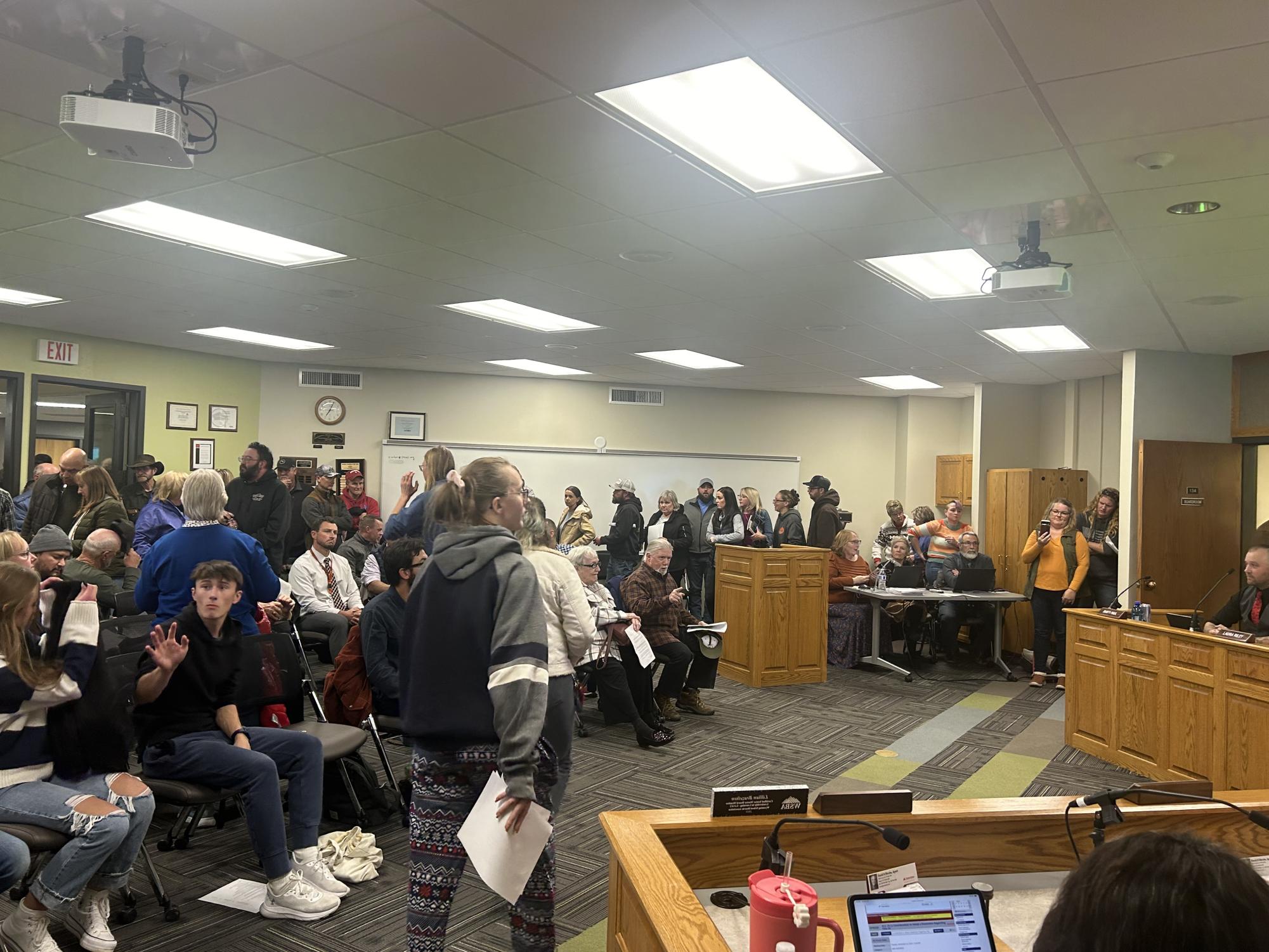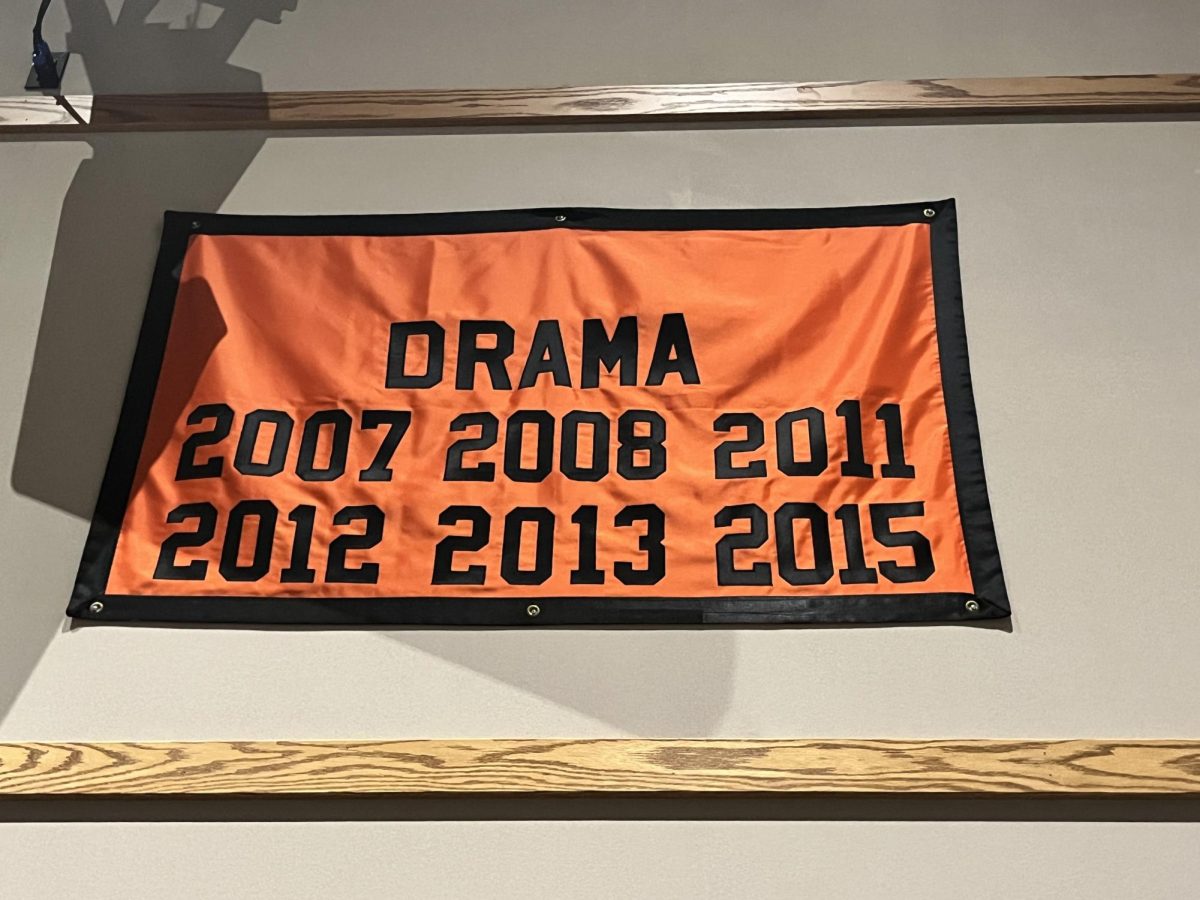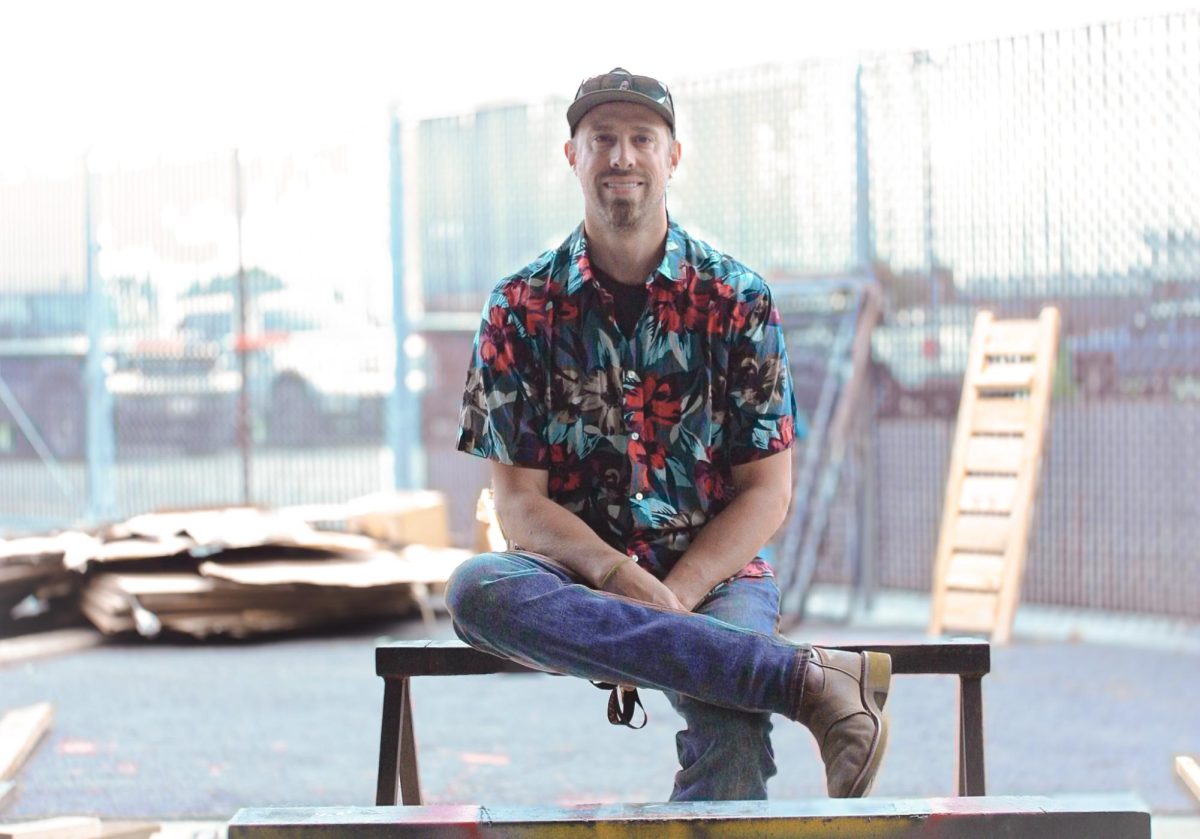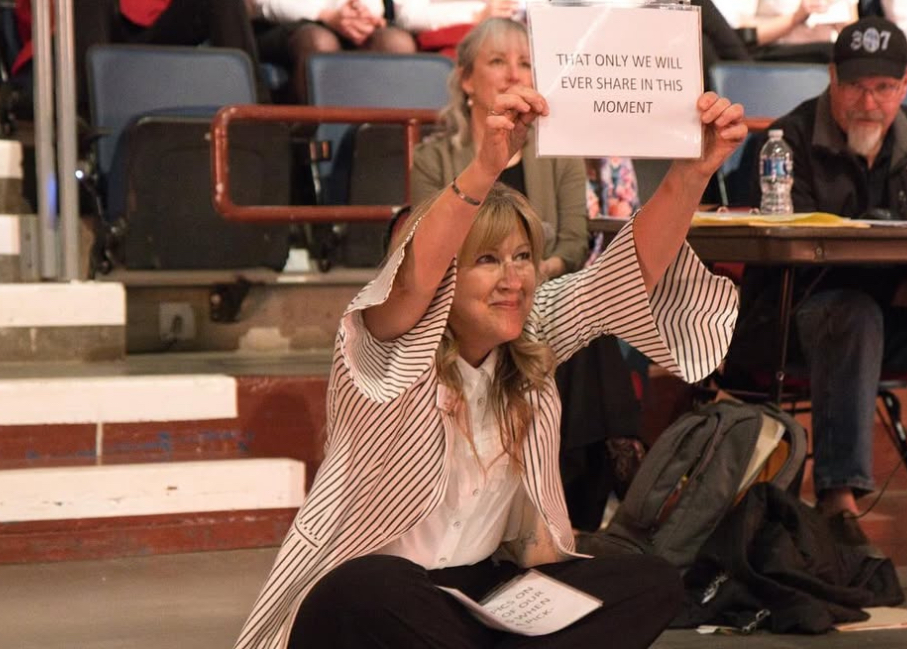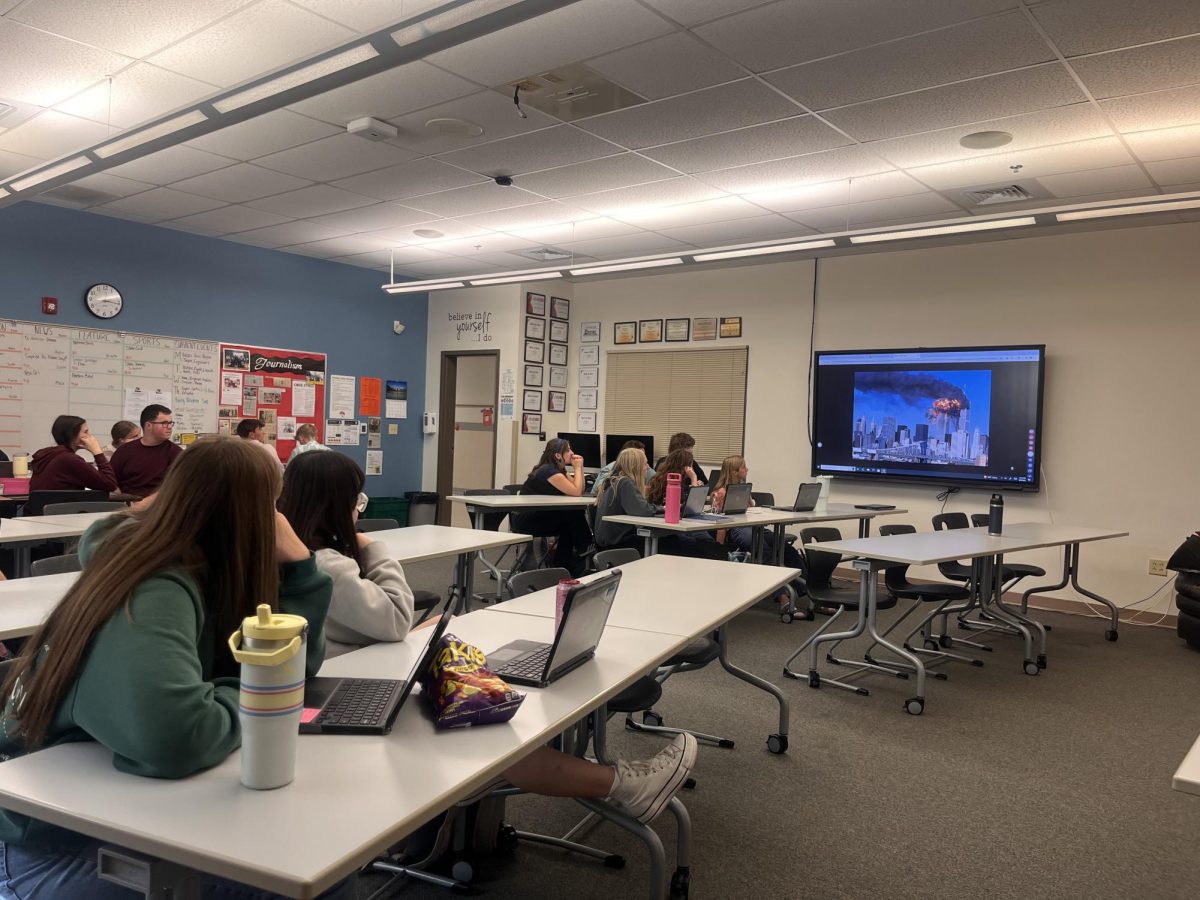In the last several years of Park County School District 1 meetings, the town had never seen so many participants and public spectators. The entire room overflowed with community members ready to discuss the business agenda.
With the school board, community members, and law enforcement present, the public commentary stretched into an hour during the portion of the agenda regarding the new Title IX regulation.
Commentary ventured from counseling to sexual assault victims as members expressed their fears, support, and displeasure towards the numerous aspects of the policy.
Joni Bennett didn’t hold back her displeasure regarding the lack of progress on this topic. When Bennett was told to refrain from disparaging comments, the crowd expressed their support towards her remarks, and she was allowed to continue.
“Why has it taken you guys two and a half years to come up with this resolution?” Bennett said. “I have been standing over there and watching you. Members of your board have been playing on their phones, making disgusting faces, not really caring… I believe that every child should be taken care of. I believe that every person who walks through the school doors should be taken care of, that no child should go without an education…So you tell me why us as a community have to get enraged and upset and have to fill this room before you listen to us.”
Grace Coombs, a PHS graduate and sophomore at Northwest College, expressed new regulations towards trans-gender students to be “dehumanizing” and expressed her hope for kindness and compassion to be incorporated into any decision made. She addressed the crowd, asking them to look down at their hands, and was asked to only address the board. She then continued explaining her example towards the board members.
“Do your hands look any different than the trans students’ hands? Is a trans student any less human than maybe your child or yourself?” Coombs said. “Let me be clear: being transgender does not make someone a threat. The idea that transgender people are somehow a danger is rooted in fear and misinformation.”
Justin Eden expressed his displeasure regarding the board’s lack of decision. He told the members to “do something productive” as members of the crowd raised their hands in common sentiment.
“My youngest daughter has filed an official complaint with the matter of boys being in girls’ bathrooms because she has been in the bathroom with a male student,” Eden said.
“Since then, she has not been offered any guidance or help. She feels like her voice has fallen on deaf ears. When my daughter comes home and tells her mom that, ‘I guess somebody’s going to have to get sexually assaulted before they do anything,’ is disgusting. I’m asking you to quit sitting on your hands and do something proactive. Quit waiting around for the state to do something and keep our children safe…”
A mother, Eliza Hurst, explained to the board members her experience with her young daughter and worries about her visual exposure from other students.
“I believe that I am responsible when I talk to my child about sex, about body parts, pretty much anything that belongs to a certain sex,” Hurst said. “If my child as 10 years old sees by accident a biological boy in the restroom or lockers and sees private body parts, how can I explain that to my child when I’m not prepared for, or who gives other people the right to force me to explain that to my child about that type of stuff at an early age?”
Among the dozens of attendees at the meeting, another mother’s perspective was provided by Heidi Robinson and her child’s experience with virtual learning due to their discomfort.
“My daughter was restricting her water,” Robinson said. “She did not feel like she had access to any sort of resources without being targeted herself. Both my son and daughter have been in intimate situations with a non-conforming student. My son came to me and said, ‘I don’t feel that this is right in the locker room. I don’t feel like this is safe for the kid. I don’t know as a gentleman how to act in this situation …’ My daughter has also been in the bathroom with the student. Most of her anxiety and fear is not from the student. It is from the lack of policy…”
Most comments were directed towards lack of action, and executing a change.
Michelle Hartman stepped to the podium to explain her stance on the topic of transgenderism. She began to quote scripture, Roman 118, “for the wrath of God is revealed from heaven against all ungodliness and unrighteousness of men who by their unrighteousness suppress the truth… which he made us, male and female.”
“So, I would also say there is hope,” Hartman said. “Although the wages of sin is death, the gift of God is eternal life in Jesus Christ our Lord. Thank you.”
Before the resolution was passed, Superintendent Jay Curtis shared his remarks regarding the lack of a current policy in place. After legal counseling, the board was advised that no policy should be put in place due to its deep roots in the Title IX regulations, he said.
“To be honest, the case law is extremely muddy…,” Curtis said. “Oklahoma had passed a law in 2023… that law is currently being challenged in court… this is not a Powell issue. It is a Wyoming issue. It’s a United States issue.”
Curtis then addressed the chairman, Mr. Kim Dillivan, that the resolution be passed. The motion was entertained and shortly after approved.
“In terms of results, it is hard to say,” high school principal Timothy Wormald said. “Supporting a resolution is different from most action items the board considers… A resolution, however, does not have that same result. The resolution indicates what the board would like to see happen, but does not result in any outcome that is tangible like a new policy or new employee. But, as Mr. Curtis explained, “supporting a resolution is as much as the board can do at this point.“



